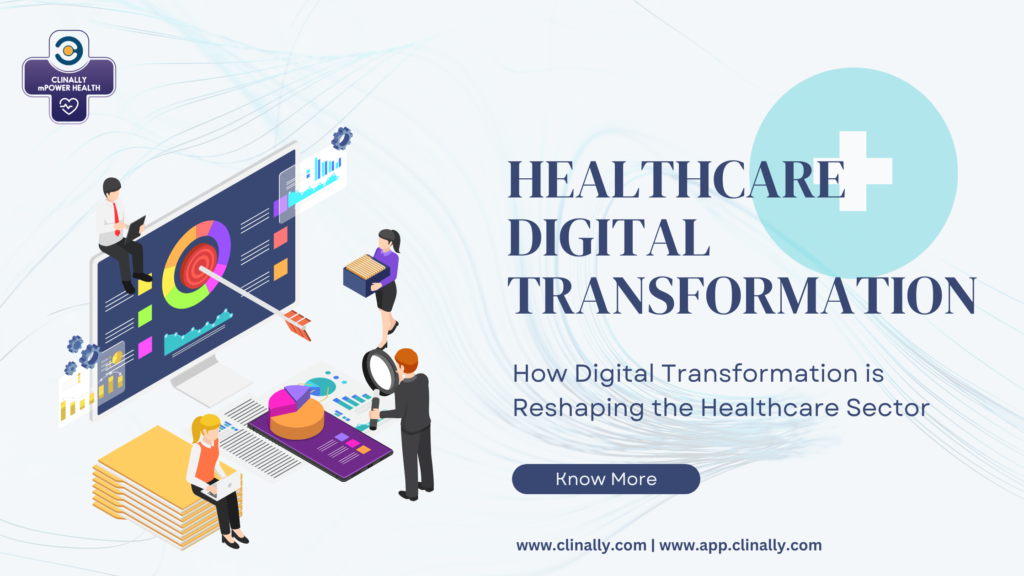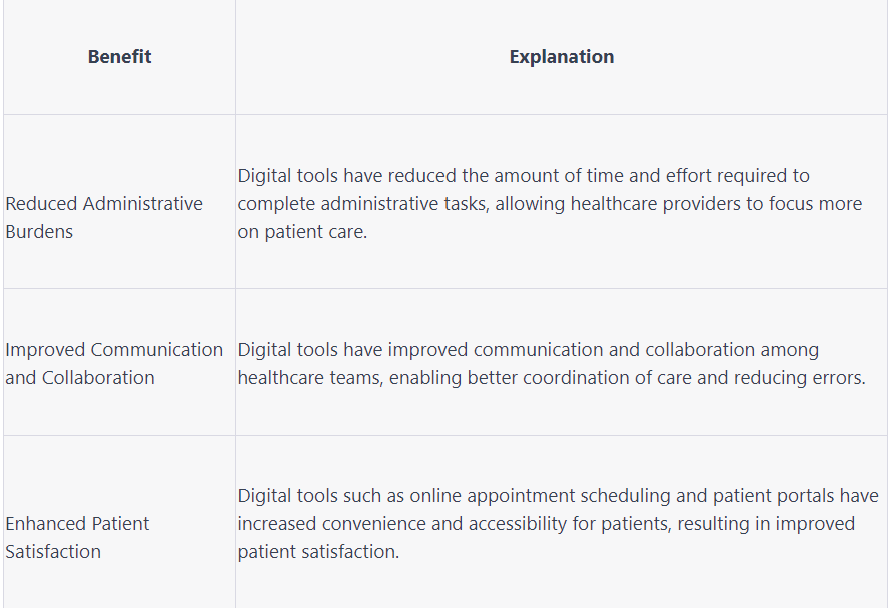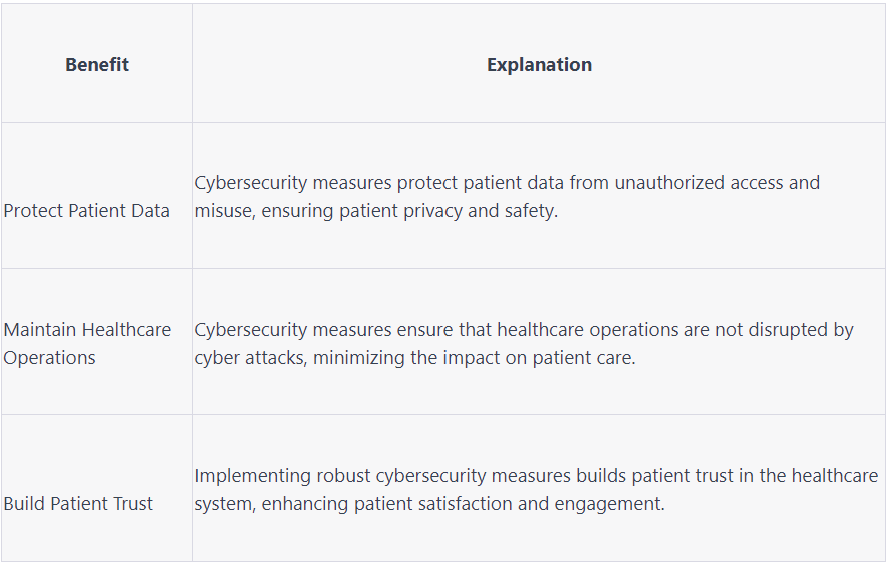How Digital Transformation is Reshaping the Healthcare Sector

The advancements in technology and digital tools have significantly impacted the healthcare sector and paved the way for an era of digital transformation. The integration of digital tools has opened new avenues for patient care, enhanced data analytics, and telemedicine, and improved workflow and operational efficiency. It has revolutionized the way we approach patient care and has resulted in better outcomes for patients.
In this article, we will delve into the impact of digital transformation on healthcare and how it has reshaped the healthcare sector. As medical professionals, it is our duty to keep up with the latest developments and incorporate them into our practice for the benefit of our patients.
Improved Patient Care
The first and most crucial point in understanding the impact of digital transformation on healthcare is the significant improvement it has brought about in patient care. The integration of digital tools has transformed the way we approach patient care, making it more accessible, convenient, and efficient for both patients and healthcare providers.
One of the most significant benefits of digital transformation in healthcare is improved accuracy and efficiency in patient care. Digital tools have made it possible to track patient data in real time, allowing healthcare providers to make informed decisions and provide personalized care. Digital tools have also reduced the risk of errors and enabled a more streamlined approach to patient care.
Here is an overview of some of the digital tools that have improved patient care in healthcare:

Digital transformation has enabled healthcare providers to take a patient-centric approach to care, focusing on improving patient outcomes while reducing costs and increasing efficiency. The integration of digital tools has made healthcare more accessible and convenient for patients, resulting in better patient experiences and improved health outcomes.
Enhanced Data Analytics
The second point in understanding the impact of digital transformation on healthcare is the enhanced data analytics it has brought about. Digital transformation has made it easier to collect and analyze healthcare data, providing healthcare providers with insights into patient health, treatment outcomes, and population health trends.
Improved data analytics has significant benefits for patient outcomes, reducing costs, and improving decision-making. It allows healthcare providers to identify health trends and risk factors, monitor patient progress, and make informed decisions about treatment options.
Here is an overview of some of the benefits of improved data analytics in healthcare:

Digital transformation has enabled healthcare providers to leverage data analytics to improve patient outcomes, reduce costs, and improve decision-making. The integration of digital tools has made it possible to collect and analyze healthcare data in real-time, providing insights into patient health that were not previously available. This has revolutionized the way healthcare providers approach patient care, enabling a more personalized and targeted approach to treatment.
Telemedicine and Virtual Care
The third point in understanding the impact of digital transformation on healthcare is the rise of telemedicine and virtual care. Telemedicine and virtual care are digital tools that allow healthcare providers to provide remote care to patients, improving access to care and reducing costs.
Telemedicine involves the use of video conferencing technology to connect patients with healthcare providers remotely, allowing them to receive diagnosis, treatment, and follow-up care without having to visit a healthcare facility. Virtual care, on the other hand, involves the use of digital tools, such as mobile apps and wearable devices, to monitor patient health remotely and provide personalized care.
Here is an overview of some of the benefits of telemedicine and virtual care:

Digital transformation has enabled healthcare providers to provide remote care to patients, improving access to care and reducing costs. The integration of telemedicine and virtual care has revolutionized the way healthcare providers approach patient care, allowing them to provide personalized and targeted care to patients regardless of their location.
Improved Workflow and Operational Efficiency
The fourth point in understanding the impact of digital transformation on healthcare is improved workflow and operational efficiency. Digital tools have transformed the way healthcare providers approach administrative tasks, enabling a more streamlined approach to healthcare delivery.
Digital tools such as electronic health records (EHRs), automated appointment scheduling, and online patient portals have significantly reduced administrative burdens on healthcare providers, allowing them to focus more on patient care. Digital tools have also improved communication and collaboration among healthcare teams, enabling better coordination of care and reducing errors.
Here is an overview of some of the benefits of improved workflow and operational efficiency in healthcare:

Digital transformation has enabled healthcare providers to improve workflow and operational efficiency, enabling a more streamlined approach to healthcare delivery. The integration of digital tools has significantly reduced administrative burdens, improved communication and collaboration among healthcare teams, and enhanced patient satisfaction. This has resulted in better outcomes for patients and a more efficient healthcare system overall.
Cybersecurity and Privacy Concerns
The fifth point in understanding the impact of digital transformation on healthcare is the increased focus on cybersecurity. As healthcare becomes increasingly digitized, it also becomes more vulnerable to cyber attacks. Cybersecurity threats can compromise patient data and disrupt healthcare operations, putting patient safety at risk.
Digital transformation has made it possible for healthcare providers to implement robust cybersecurity measures, including data encryption, secure access controls, and regular system audits. Healthcare providers are also implementing cybersecurity training programs to ensure that their employees are aware of potential threats and know how to respond to them.
Here is an overview of some of the benefits of increased focus on cybersecurity in healthcare:

Digital transformation has enabled healthcare providers to implement robust cybersecurity measures, protecting patient data, maintaining healthcare operations, and building patient trust. The integration of digital tools has also made it possible for healthcare providers to detect and respond to cyber threats in real-time, minimizing the impact on patient care.
“If you are a doctor we invite you to act today and download Digital Health Platform from your play store or app store. With ClinAlly mPower app, you can gain access to cutting-edge technology and tools that will help you deliver better patient care, increase efficiency, and improve patient outcomes. Our app is easy to use, and it is designed to integrate seamlessly with your existing healthcare workflow. Download our ClinAlly mPower App today and join the growing community of healthcare providers who are transforming the way healthcare is delivered and received.”
Conclusion
In conclusion, digital transformation has had a significant impact on the healthcare sector, transforming the way healthcare is delivered and received. The integration of digital tools has enabled healthcare providers to improve patient care, reduce costs, streamline workflow and operational efficiency, and enhance cybersecurity. Patients are now able to access healthcare services remotely, reducing the need for in-person visits, and improving access to care. Healthcare providers can also use digital tools to monitor patient health remotely and provide personalized care.
However, it is important to note that digital transformation is an ongoing process, and there are still many challenges that need to be addressed. For example, ensuring that patients have access to affordable and reliable internet services to access telemedicine and virtual care. Additionally, healthcare providers need to ensure that the implementation of digital tools does not compromise patient privacy or data security.
Overall, digital transformation has brought about many positive changes in the healthcare sector, and it will continue to shape the future of healthcare. Healthcare providers must continue to adapt to these changes, embracing digital tools and technologies to improve patient care and outcomes while also ensuring patient privacy and data security.


